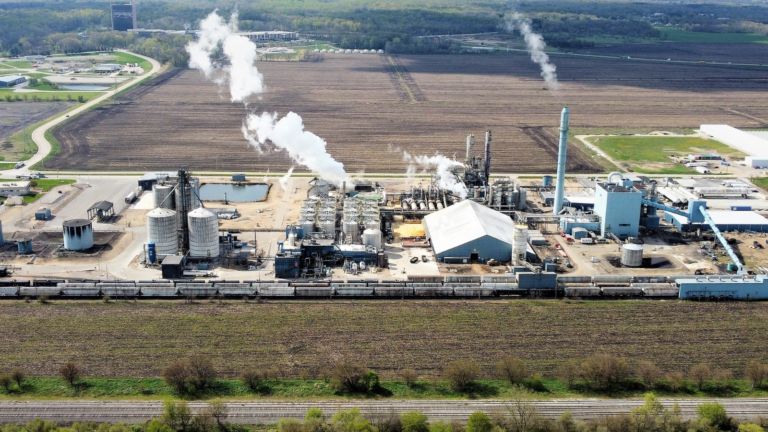VERBIO will start producing bioethanol and biomethane in Indiana
VERBIO North America Holdings Corporation, a subsidiary of VERBIO Vereinigte BioEnergie AG, has acquired South Bend Ethanol, LLC. VERBIO North America announced yesterday the signing and closing of the purchase agreement with Mercuria Investments US, Inc. The plant has a current production capacity of 250.000 tons of ethanol per year.
South Bend, Indiana, will be the second production site for VERBIO in the USA after the successful commissioning of the biorefinery in Nevada, Iowa. VERBIO intends to convert the plant into another biorefinery with combined bioethanol-biomethane production based on the model their German plants use. The total investment planned for this will be approximately $230 million.
“We are excited about the opportunity to further expand with our innovative biorefinery technology and to start producing bioethanol and biomethane in Indiana,” comments Stefan Schreiber, Executive Board Member for North America of VERBIO AG. “The acquisition of South Bend Ethanol is another step in our growth strategy to expand our production capacities globally. The site offers optimal conditions for our biorefinery concept in terms of competitive feedstock sources as well as a suitable infrastructure for the global marketing of our products.”
Conversion to a VERBIO biorefinery by 2026
VERBIO plans to convert the ethanol plant in South Bend into a biorefinery modeled on VERBIO’s German plants over the next three years. Their concept enables the processing of different agricultural raw materials at one site, which results in economies of scale, more intensive raw material utilization and lower energy consumption. This significantly increases efficiency and sustainability and improves the greenhouse gas balance. VERBIO has already proven this at its sites in Schwedt/Oder (Brandenburg) and Zörbig (Saxony-Anhalt) with more than ten years of successful production. After the transformation, the production capacity of the new plant will be 250.000 tons of bioethanol and 850.000 MWh of biomethane annually.
The biomethane is injected into the regional natural gas grid and is available as a biofuel or renewable energy source for industrial applications. Following processing, high-quality liquid fertilizers and humus are returned to the fields, closing the sustainability cycle.
All current employees at the facility will be retained. In addition, the construction project will create a significant number of indirect jobs in the surrounding community and across the State of Indiana. VERBIO is already working on plans for a rapid start of construction in the coming months. The supply of biomethane for use in transportation and industry is scheduled to start in 2026.
Inflation Reduction Act (IRA) promotes climate-friendly VERBIO technology
The Managing Board of VERBIO AG most recently confirmed its course to invest more in the USA at the Annual General Meeting in February 2023.
“We currently see a strong desire in the USA to take the global lead in new environmental technologies. VERBIO had already identified the USA as an attractive market for its internationalization strategy in 2018, well before the IRA. However, the IRA fits our business model exactly and, with its investment and production support, acts as a boost for our development in North America. There is incredible momentum because the combination of government funding, low energy and raw material costs, well-developed infrastructure, long-term planning and reliability provides an ideal environment for investment. The new plant in Indiana opens up new perspectives and underlines our growth and internationalization strategy,” says Claus Sauter, CEO of VERBIO AG.
“Europe urgently needs to respond to the IRA if it still wants to play any role in modern technologies globally. As a German company, we have no choice but to invest even more in the USA and take advantage of the opportunities offered by the IRA. Europe is currently sleeping through the next big technology wave. Europe is sleeping through the future,” concludes Sauter.

